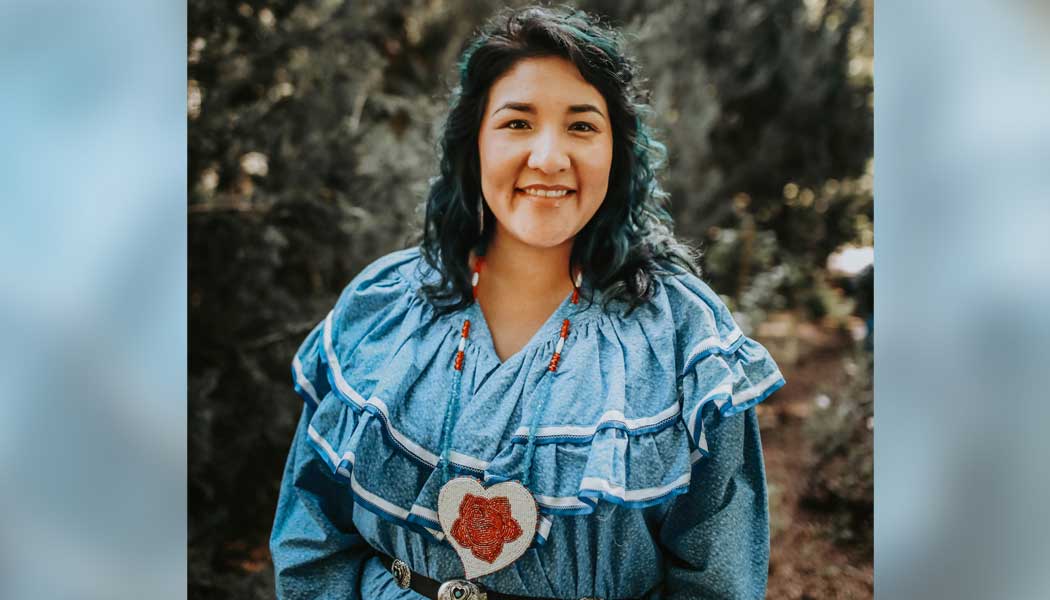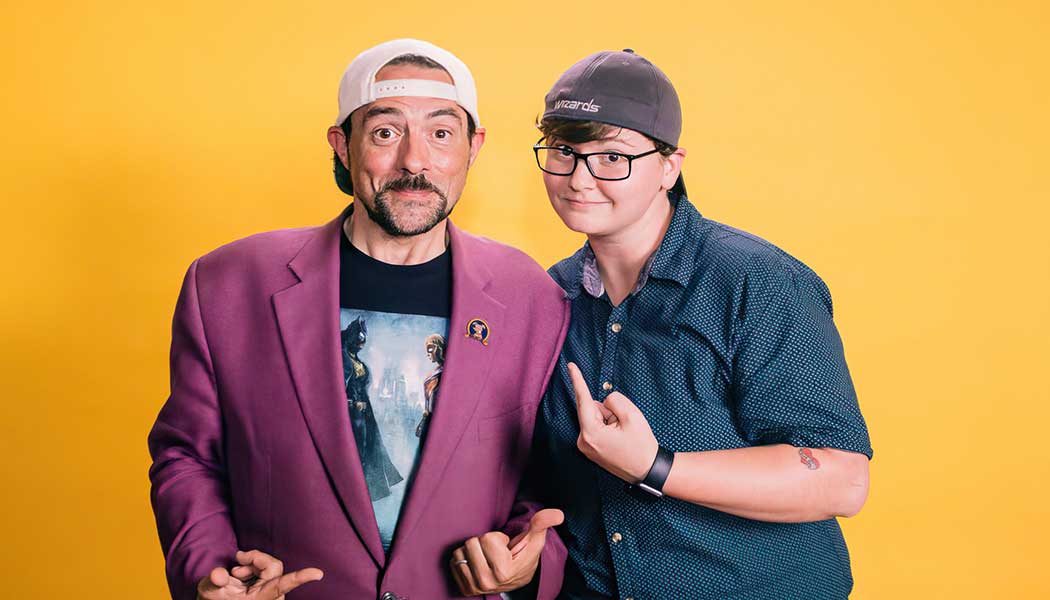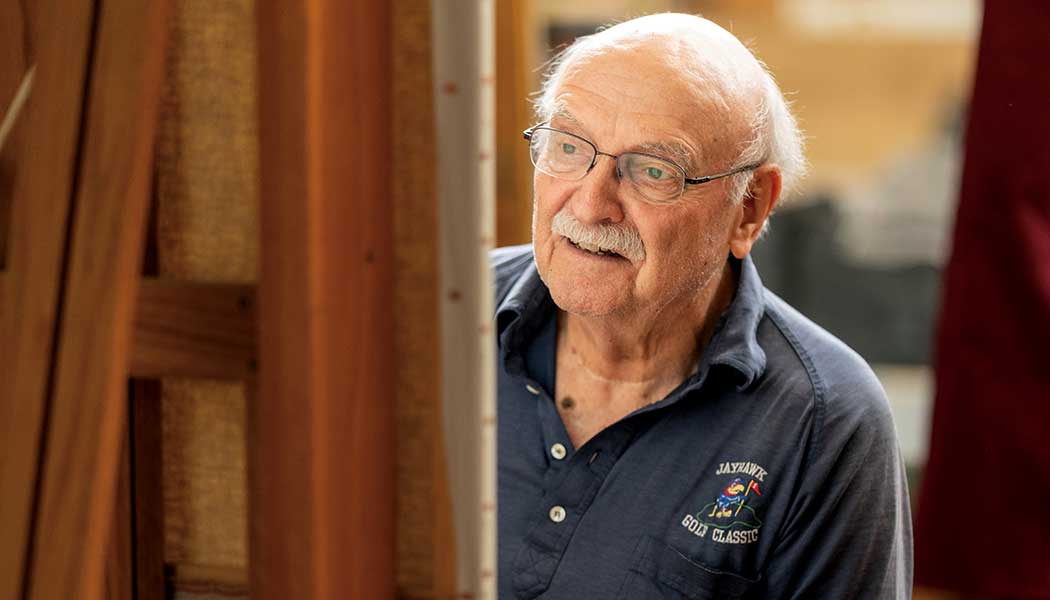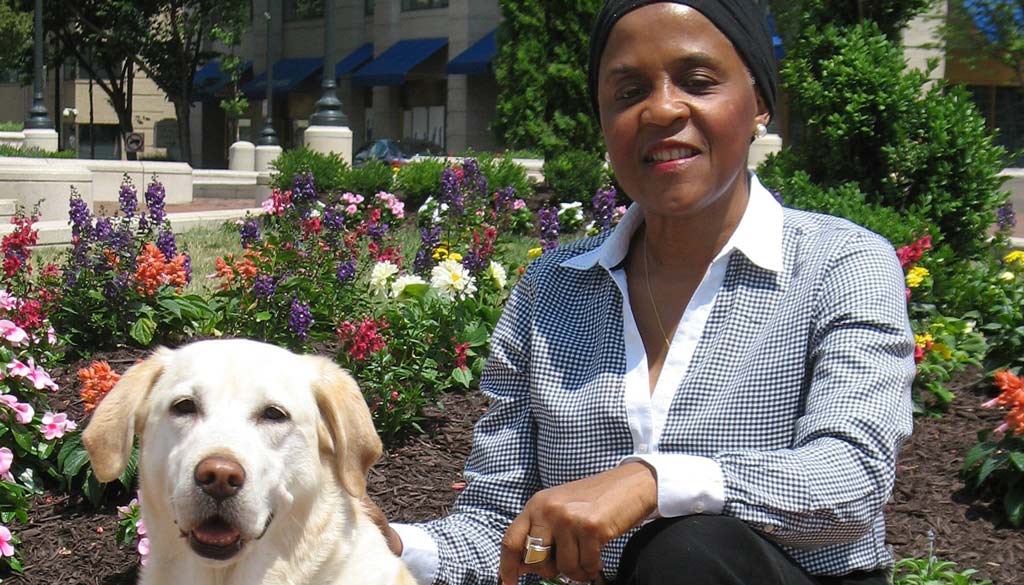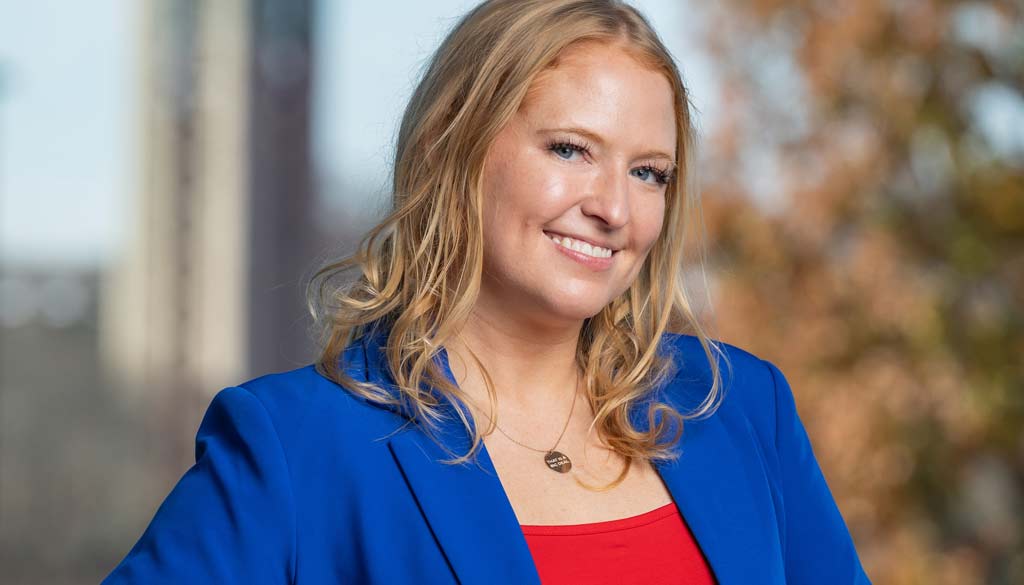KU alumnus delivers direct aid to Ukraine refugees
Chris Rogala recounts his volunteer work near the Polish-Ukraine border and discusses his continued mission to offer help and promote awareness.
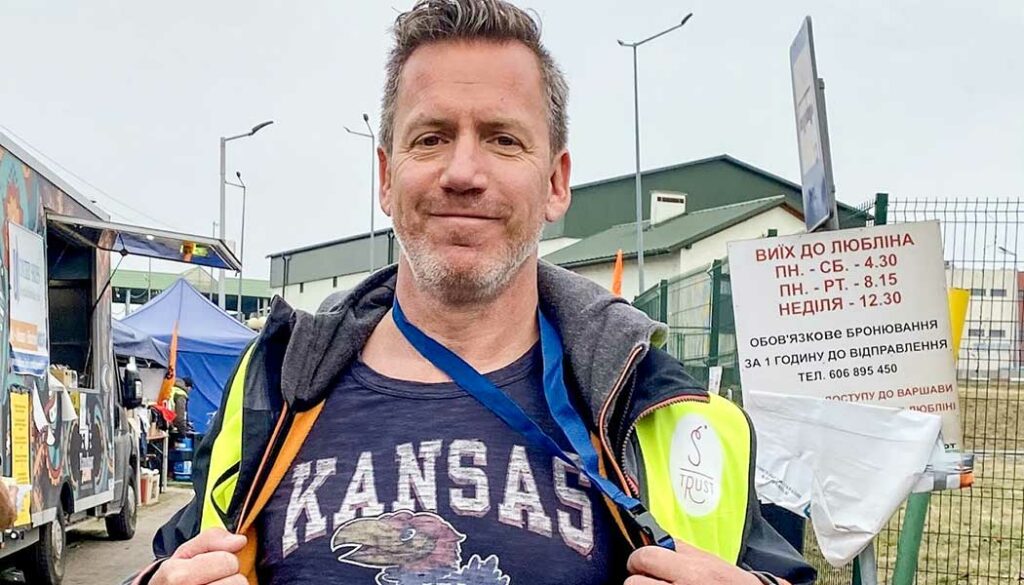
Chris Rogala was driving an Arizona highway in February 2022 when he experienced a life-changing, “enough is enough—I’ve got to do something” moment.
Rogala, c’91, was listening to National Public Radio reports of the horrors Russia was unleashing on the people of Ukraine.
By the next month, Rogala was near the Polish-Ukraine border, hurrying from town to town, using money he’d raised before the trip to buy supplies for desperate refugees. (He paid for all travel and in-country expenses from his own pocket.)
What he saw and experienced during his 10 days helping Ukrainian refugees along the border cemented his resolve to return this September and do even more.
“I’ll never forget the sight of an old woman, probably well into her 80s, walking with a suitcase in each hand. She was walking into the unknown, having to start totally over, at that age, with only what she could carry,” Rogala says. “I couldn’t believe one man, Putin, could have so much power to make all of those horrible things happen to innocent people. I saw those people fleeing their own country, many leaving as their homes were being bombed by the Russian military. Words can’t describe how bad it is.
“Thinking of ways to help those people has been on my mind ever since.”
Rogala, who earned his degree in communication studies, owns an office space marketing business in his native Chicago and sells real estate near Phoenix. He has often worked with well-established American charities. Figuring out how to directly help refugees half a world away took research.
He finally came across Siobhan’s Trust, a Scottish charity group previously dedicated to causes in Scotland. Like Rogala, Siobhan’s leaders felt a deep need to help the Ukrainian people after the unprovoked invasion. Tom Hughes, Siobhan’s director of field operations, urged Rogala to join him and his staff in eastern Poland.
Following a personal trip to England, Rogala flew to Kraków, rented a car and headed toward the border.
“I didn’t really know where I was going, or exactly what I’d end up doing,” he says. “I was both nervous and excited. I just knew I had to get there and get involved.”
Rogala used about $17,000 he’d raised in a GoFundMe account to buy diapers, food, coloring books and anything else he thought might make life better for the refugees.
He stopped at a “tent city” at the border. The sight of so many Ukrainians crossing the border was worse than he’d feared.
“It was a muddy mess, and we had people coming literally with nothing,” he says. “Some were missing limbs from the war. There were so many mothers carrying tiny babies and leading small children, while their husbands had stayed to fight the Russians. Everybody was scared.”
Rogala continued to make daily drives deeper into Poland for supplies, because towns close to the border crossings quickly ran out of most goods. He hurried back to give whatever he’d found to refugees who were often hesitant to take handouts. Most had been hardworking, successful people, Rogala says, and may have felt ashamed to rely on charity.
“You had to learn ways to reach them, to make them smile and feel comfortable,” he says. “Sometimes I’d drop to a knee and act like I was begging them to take what I was offering as if it was a favor to me.”
His dedication didn’t go unnoticed.
“I remember Chris’s generosity and passion to help,” Hughes, of Siobhan’s Trust, said via email. “When Chris arrived, [humanitarian groups and volunteers] were serving millions of refugees fleeing Putin’s war. Chris spent so much time driving back and forth, buying supplies of food, water and fuel for fires that kept people from freezing. We hope to see Chris again, soon.”
Rogala was exposed to some of the worst sins of humanity. In addition to the devastation of war, the crisis drew predators trying to take advantage of the charities and stealing from the refugees, he says. Human traffickers were rumored to be preying on young, desperate women.
Still, it was the amazing generosity of others that left the largest impression on Rogala.
“As heartbreaking as it was, it was the coolest, most rewarding thing I’ve ever done,” he says. “I met people from Indianapolis to Australia. Most were just normal people, like me, who came because they wanted to help however they could. We had chefs come from all over, making
everything from soup to pizzas to give to the Ukrainians. People were doing whatever they did best to help. It was so inspirational.”
Rogala credits the generosity of Polish citizens in helping their Ukrainian neighbors, yet he is frustrated by the response of Americans. In early 2022, he raised about $17,000 for aid in a few weeks. This year, however, donations to his GoFundMe effort were only $3,300 by late April, even though he has promised to match the first $5,000 with his personal funds.
“It’s been a harder go, and I think a lot of it is Americans have seen some good news and might think the Ukrainians are winning the war and don’t need any more help. That couldn’t be any further from the truth. These people are still devastated and have lost so much,” he says. “I’m trying to keep people’s awareness high as to what’s still going on. I just have to go back and do whatever I can.”
Michael Pearce, ’81, is a Lawrence freelance writer and frequent contributor to Kansas Alumni.
/
